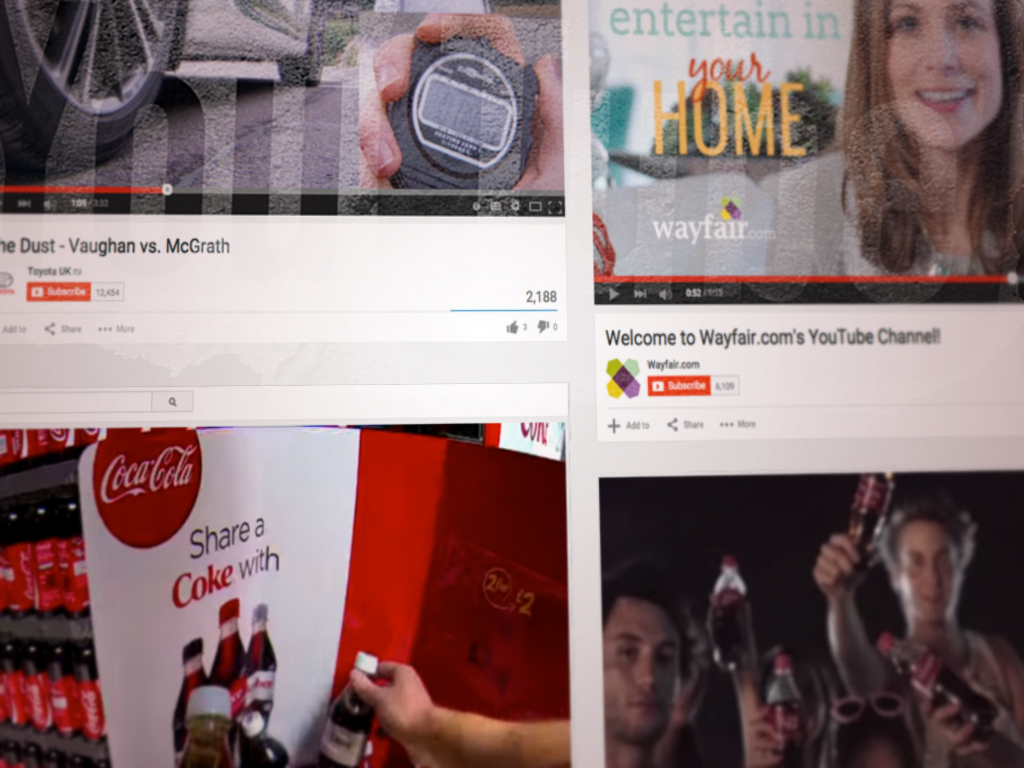Brands and marketers now recognize that developing partnerships with top bloggers can add huge value to influencer marketing campaigns. Working with vloggers on platforms such as YouTube is an authentic, engaging way to reach consumers and generate brand awareness. However, balancing advertorial with authentic messaging has always been a challenge, especially in light of new UK advertising guidelines. Will these new rules impact how brands work with vloggers?
A new set of guidelines from the Committee of Advertising Practices (CAP) has outlined a set of scenarios defining what constitutes fair advertising practice for brands and influencers working on video platforms.
The UK guidelines follow Federal Trade Commission (FTC) guidelines released in 2013, which among other things, advised that branded blogger content should “at the very least,” include a disclosure indicating whether it was “Sponsored” or an “Ad”.
Why These Guidelines Are Significant
Vlogging has become extremely lucrative for brands and for influencers. A recent BBC report revealed that top UK vloggers can earn upwards of £20,000 per month for banners and skins around the edges of web pages, or £4,000 for a branded tweet or Instagram post alone. Earlier this year, it was revealed that YouTube sensation and vlogger, PewDiePie, earned $7.4 million for his gaming videos in 2014.
The impact for brands can be equally impressive. Superdrug, following the launch a new line of cosmetics in partnership with UK YouTube influencer Zoella, sold a record breaking 70,000 units in the first month alone, and brought in an estimated £975,000 in sales after five months.
Get ready for the weekend with these #ZoellaTuttiFruity goodies! pic.twitter.com/7ROi87wDhI
— Zoella Beauty (@ZoellaBeauty) August 7, 2015
The #ZoellaTuttiFruity range at Superdrug broke UK records for sales in the first month.
The audiences these influencers command means that forming an influencer partnership can be a lucrative proposition for brands. Vlogging is perceived as being authentic, audiences find their favorite personalities relatable, and they feel as if they are able to get good advice from them.
Zoella has been described by many of her audience as being their ‘big sister’; PewDiePie fans, on the other hand, are commonly referred to as a community of “bros.”
For this reason, however, a delicate balance has to be stuck between advertorial or branded content and the content that the fans of these influencers know and love.
What The CAP Guidelines State
The CAP guidelines outline a non-exhaustive list of eight different scenarios where individual guidelines apply, with the aim of increasingly transparency around advertorial partnerships.
The guidelines go into specific details on how these relationships can work going forward: content produced in collaboration between a brand and an influencer and distributed via the brand’s own channel for instance, is considered transparent marketing communication. However, if the same content is uploaded to a vlogger’s own channel, it is then considered advertorial.
Chiefly, vloggers will be interested in how the guidelines will affect these “advertorial” videos, and the guidelines state the following:
“[When] there is payment and control by the brand, this is an advertorial and needs to be labelled upfront so that viewers are aware and understand that it is an advertorial before engaging.”
The CAP guidelines go as far as to advise against labels such as “Sponsored by”, “Funded by”, or language such as “Thanks to X for making this possible”, as it may be misunderstood by consumers to mean that the brand has had no input on the content.
Essentially, the guidelines confirm that in instances where a brand and an influencer are partnered, and the brand has a role in the content being produced, that disclosures or disclaimers are necessary.
However, that is not to say that every fashion video, or video game play-through from now on will need a disclaimer. In cases where brands “sponsor” a channel or influencer, but retain no control over the content itself, the video will not be deemed “advertorial”, and no disclaimers will be necessary. Equally where brands give away freebies to key influencers, without conditions around the content to be produced, videos are also considered non-advertorial.
(Read CAP’s full vlogger partnership guidelines here.)
How Will Disclosures Affect Audiences?
According to both FTC and CAP, disclosures for paid for advertorials must be clear, which for the most part means adding a note in the video description. Here’s an example from Zoella:
Overall, there is little indication that such disclosures have a negative affect on consumers. The comments, for example, are typically positive and there is no criticism of the fact that the video is a paid for advertorial. If anything, consumers here expect a level of branded partnership and appreciate the added transparency.
However, that isn’t to say that all content can be advertorial. The real reason people engage so well with vloggers is for the unsponsored, authentic content that they produce. Many vloggers produce a much greater depth of content that is unsponsored, featuring products they have picked out and purchased themselves.
So-called ‘haul’ vlogs typically involve a showcase of products an influencer has chosen themselves.
While the occasional advertorial can be largely accepted by viewers, vloggers could endanger the authenticity of their content by creating predominantly branded content. However, the occasional well-produced advertorial, perhaps including a competition or prize giveaway, can boost and accelerate an influencer’s career.
As ever, balance is the key.
In many cases, brands are still able to work in partnership with vloggers without providing disclosures by giving vloggers full control over the content (in these cases “a nod to the sponsor”) is deeemed sufficient to meet consumer protection legislation.
Key Takeaways
For brands looking to work in partnership with vloggers in the future, here are three key takeaways in light of the FTC and CAP guidelines:
- Transparency is key. If the content is good, than consumers expect a level of branded partnership, and clear disclosure of advertorial content is often appreciated. Such clarity can be beneficial for both brands and consumers, avoiding any potential misunderstandings and maintaining perceived authenticity of a vlogger’s content.
- Maintain a balance between the number of paid for advertorials, and content which is sponsored without imposing conditions. At the end of the day, it’s the genuine, unrestricted and free aspects of a vlogger’s content which consumers love and keeps them coming back.
- Trust in your partnerships. Many vloggers have built reputations and audiences on being highly in tune with that which their audiences want. If you’ve identified a vlogger who has a large following in a target demographic, it’s likely that they will have an acute understanding of what content will be effective for that audience.
What are your tips for partnering with vloggers?



